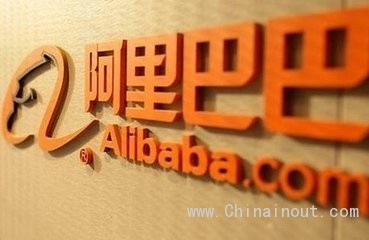馬云能否兌現(xiàn)路演承諾,?


1992年,馬云(Jack Ma)還是杭州的一位英語(yǔ)教師,,他需要籌措大約4000美元來(lái)創(chuàng)辦他的首個(gè)企業(yè)——一家翻譯機(jī)構(gòu),。他努力了好幾個(gè)月,,卻沒(méi)有成功,。
上周五,這位阿里巴巴(Alibaba)的創(chuàng)始人卻成功實(shí)現(xiàn)了史上最大規(guī)模的上市活動(dòng)之一,,在一部分全球最大型銀行的幫助下,從一部分全球最大的投資者手中籌集了218億美元,。
為了做到這一點(diǎn),,他曾面臨一個(gè)挑戰(zhàn):要在包括100場(chǎng)會(huì)議的路演中說(shuō)服投資者相信,,他的集團(tuán)可為他們帶來(lái)中國(guó)電商成長(zhǎng)故事中的誘人好處,,同時(shí)不會(huì)讓他們面臨西方投資者常在中國(guó)企業(yè)身上看到的風(fēng)險(xiǎn),。如今,問(wèn)題變成了他能否兌現(xiàn)他的承諾,。
在上市臨近之時(shí),潛在的投資者表達(dá)了幾點(diǎn)擔(dān)憂:首先是這家在開(kāi)曼群島注冊(cè)的集團(tuán)的架構(gòu),,該集團(tuán)的許多業(yè)務(wù)是通過(guò)馬云及其一位同事所有的“可變利益實(shí)體”(VIE)運(yùn)營(yíng)的;其次是該集團(tuán)的治理結(jié)構(gòu),,該集團(tuán)實(shí)權(quán)落在一個(gè)由30人組成的合伙人團(tuán)隊(duì)手中;還有就是對(duì)中國(guó)自身的擔(dān)憂,,在中國(guó)目前的熱點(diǎn)新聞中,,到處都是有關(guān)腐敗及政府干預(yù)的消息,。
馬云甚至還曾告訴潛在的股東,,他們的利益將被擺在阿里巴巴的客戶和員工之后,。然而,,截至開(kāi)盤(pán)當(dāng)日收盤(pán)時(shí),,阿里巴巴的股價(jià)較發(fā)行價(jià)上漲了38%,。投資者對(duì)阿里巴巴首次公開(kāi)發(fā)行(IPO)的這種回應(yīng)表明,,馬云贏得了他們的支持。
今年50歲的馬云想讓國(guó)際投資者相信,,不僅阿里巴巴不像許多中國(guó)企業(yè)那樣神秘,,而且這次IPO將有助于該集團(tuán)進(jìn)一步提高透明度,。
在紐約證交所(NYSE),,鏡頭前的馬云一再?gòu)?qiáng)調(diào):“要信任,。信任我們,信任市場(chǎng),,信任年輕人。信任新科技,。世界正變得更加透明,。”
摩根凱瑞資本管理公司(Morgan Creek Capital Management)首席執(zhí)行官馬克•尤斯科(Mark Yusko)表示:“對(duì)中國(guó)企業(yè),、中國(guó)企業(yè)架構(gòu)和中國(guó)政府的偏見(jiàn),是有待克服的巨大障礙,。”
阿里巴巴IPO營(yíng)銷的核心內(nèi)容,是它對(duì)中國(guó)增長(zhǎng)的預(yù)期,。在中國(guó),消費(fèi)者開(kāi)支正迅速增長(zhǎng),,互聯(lián)網(wǎng)普及率遠(yuǎn)遠(yuǎn)落后于歐美和日本,電子商務(wù)正呈現(xiàn)爆炸式增長(zhǎng),。
馬云告訴CNBC,中國(guó)每天遞送的2700萬(wàn)包裹,,多數(shù)源于使用阿里巴巴平臺(tái)的企業(yè),。然而,,10年內(nèi)中國(guó)每天遞送的包裹數(shù)或?qū)⒃鲩L(zhǎng)到2億個(gè),。他說(shuō),,阿里巴巴很像全球最大零售商沃爾瑪(Walmart),是一家“改變了世界”的企業(yè),。他接著說(shuō),除此之外,,“我們還想比沃爾瑪做得更大”,。
阿里巴巴的治理結(jié)構(gòu)曾令它無(wú)法在香港上市,。不過(guò)馬云表示,為確保阿里巴巴的企業(yè)文化在創(chuàng)始人離開(kāi)后仍能延續(xù),,這種獨(dú)特的合伙人結(jié)構(gòu)很有必要。
馬云還回答了西方基金經(jīng)理對(duì)中國(guó)發(fā)展趨勢(shì)的懷疑,。他寫(xiě)道,,“由于文化視角,、價(jià)值觀,、甚至是地緣政治定位上的分歧”,任何能與阿里巴巴相提并論的中國(guó)互聯(lián)網(wǎng)企業(yè)預(yù)計(jì)都會(huì)遭遇人們的懷疑,。不過(guò),阿里巴巴有機(jī)會(huì)“在中國(guó)創(chuàng)造新的商業(yè)定式”,。
部分投資者問(wèn)到阿里巴巴是否會(huì)與中國(guó)政府發(fā)生沖突,,馬云對(duì)阿里巴巴的描繪卻正相反,。他說(shuō),,阿里巴巴是一家?guī)椭鉀Q政府面臨的問(wèn)題的企業(yè),。他說(shuō),每年有850萬(wàn)商家通過(guò)阿里巴巴在線市場(chǎng)交易價(jià)值3000億美元的商品,,阿里巴巴不僅創(chuàng)造了就業(yè)崗位,,還支持著農(nóng)村小企業(yè)的發(fā)展,推動(dòng)著經(jīng)濟(jì)增長(zhǎng),。
在與投資者談話時(shí),,馬云(他取英文名時(shí)聽(tīng)從了一名美國(guó)游客的建議)一直努力打消人們對(duì)其可能在美國(guó)電商市場(chǎng)引起一場(chǎng)腥風(fēng)血雨的擔(dān)憂。美國(guó)電商市場(chǎng)是全世界最發(fā)達(dá)的。
阿里巴巴已在幫助從加州到華盛頓的小企業(yè)將車(chē)?yán)遄雍秃ur等商品賣(mài)到中國(guó),。相對(duì)于直接挑戰(zhàn)亞馬遜(Amazon)和eBay,,他對(duì)開(kāi)發(fā)亞洲和非洲的市場(chǎng)更有興趣。
馬云一直說(shuō)服投資者信任他,,迄今為止他成功了,。此次路演讓阿里巴巴團(tuán)隊(duì)的許多資深成員首次密集接觸到從倫敦到新加坡的各國(guó)投資者的思維方式。在路演之后,,馬云國(guó)際野心的提升可能會(huì)催生此次IPO的另一項(xiàng)寶貴遺產(chǎn),。
Alibaba sales pitch defines global ambitions
In 1992, when Jack Ma was an English teacher in Hangzhou, he needed about $4,000 to start his first business, a translation agency. He tried for months without success.
On Friday, Alibaba’s founder pulled off one of the largest listings in history, raising $21.8bn from some of the world’s largest investors and with the help of some of world’s largest banks.
To do so, he faced the challenge of persuading investors on a 100-meeting roadshow that his group could offer them the allure of China’s ecommerce growth story without the risks western investors often see in Chinese companies. Now, the question is whether he can deliver on his promises.
As the listing approached, potential investors voiced several concerns: about the structure of the Cayman Islands-registered group which conducts much of its business through “variable interest entities” owned by Mr Ma and a colleague; about a corporate governance arrangement wher power resides in a partnership of 30 people; and about China itself, wher headlines are dominated by corruption and government intervention.
Mr Ma even told prospective shareholders that their interests would come after those of Alibaba’s customers and employees. Yet the response to Alibaba’s initial public offering, with the shares ending the opening day 38 per cent above wher they priced, suggests he won them over.
The 50-year-old set out to convince international investors not only that Alibaba was less mysterious than many Chinese companies, but that the IPO would help it become more transparent.
In front of the cameras at the New York Stock Exchange, he hammered home this message: “Trust. Trust us, trust the market, and trust the young people. Trust the new technology. The world is getting more transparent.”
Mark Yusko, chief investment officer of Morgan Creek Capital Management, said: “Bias against Chinese companies, against Chinese corporate structures and against the Chinese government were huge hurdles to overcome.”
At the core of Alibaba’s sales pitch lay its growth projections for China, wher consumer spending is rising fast, internet penetration lags far behind the US, Europe and Japan, and ecommerce is exploding.
Businesses using Alibaba already account for a majority of the 27m packages shipped in China each day, but in 10 years the number of packages could hit 200m a day, Mr Ma told CNBC. Much like Walmart, the world’s largest retailer, Alibaba was a company that “shaped the world”, he said. For good measure, he added: “We want to be bigger than Walmart.”
Alibaba’s governance structure was enough to prevent a Hong Kong listing, but Mr Ma said that its unusual partnership structure was needed to ensure that its culture could outlive its founder.
Mr Ma also tackled western fund managers’ qualms about China head on. Any comparable Chinese internet company could expect to face scepticism “due to differences in cultural perspectives, values and even geopolitical positioning”, he wrote. But Alibaba had the opportunity “to create a new business paradigm in China”.
As some investors asked whether Alibaba might fall foul of China’s government, Mr Ma painted it instead as a company that helped solve the state’s problems. With 8.5m sellers trading $300bn worth of goods through its marketplaces each year, it was creating jobs, supporting small businesses in rural villages and aiding economic growth, he said.
Mr Ma, who adopted his anglicised name on the suggestion of a US tourist, in conversations with investors has played down fears that he might pick a fight in the US, the most developed ecommerce market in the world.
Alibaba was already helping small businesses from California to Washington sell goods including cherries and seafood to China. He is more interested in developing markets in Asia and Africa than in going head-to-head with Amazon and eBay.
Mr Ma has so far persuaded investors to take him on trust. But after a roadshow that gave many of his senior team their first intense exposure to the thinking of investors from London to Singapore, the boost to his international ambitions could provide another valuable legacy from the IPO.










